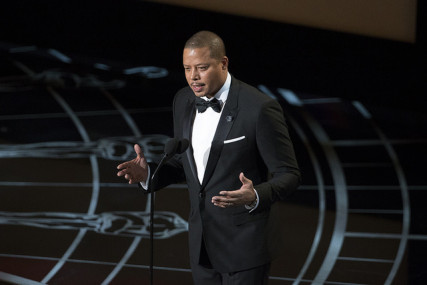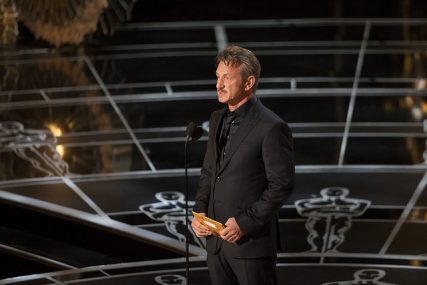All the wins for Grand Budapest Hotel aside, there weren’t too many surprises at last night’s Oscars. (And, really, maybe I was the only one surprised at that.) Birdman took home the top honors in Best Picture and Best Director, and with the possible exception of the Michael Keaton-Eddie Redmayne question, the acting winners were locked up before the ceremony even began.
The real surprises came during the show itself. And they were not good.
Neil Patrick Harris kicked off the night with a joke about honoring “Hollywood’s best and whitest–sorry, brightest,” a reference to the fact that all of this year’s acting nominees were white. Which isn’t a bad thing to point out, but making a punch line of the whiteness of the Oscars–on the Oscars stage–is pretty glib, and can sound a little self-congratulatory, especially when you consider that Academy voters are 94% white. It sounds too close to, “We’re a racist organization, and isn’t that funny, and we’ll joke about it but never actually make any change!”

Terrence Howard at the 2015 Oscars | Photo by Disney/ABC Television Group via Flickr (http://bit.ly/1DKXtzt)
THEN, some production genius decided to give the platform to Terrence Howard. He was there to introduce Whiplash and The Imitation Game, and got oddly emotional about the latter (or, in my mind, never actually saw the movie and had no idea what to say about it). Howard’s show Empire has debuted to critical acclaim, which has to be why he was on stage, but all I could think of was his history of domestic abuse, alleged and otherwise.
Patricia Arquette, who gave a barn-burner of an acceptance speech about wage equality, then went backstage and ruined it all with this:
So the truth is, even though we sort of feel like we have equal rights in America, right under the surface, there are huge issues that are applied that really do affect women. And it’s time for all the women in America and all the men that love women, and all the gay people, and all the people of color that we’ve all fought for to fight for us now.
It was such a tone deaf follow-up to a great initial speech, and so strange to ask people who are arguably more marginalized than women to give up their own fights and come join hers.

Sean Penn at the 2015 Oscars | Photo by Disney/ABC Television Group via Flickr (http://bit.ly/1JDuX6q)
Toward the end of the night, we were all treated to a joke from Sean Penn, who also has a history of domestic abuse. Opening the envelope for Best Director, Penn smirked and said, “Who gave this son of a bitch his green card?” He was talking about Alejandro González Iñárritu, the Mexican director of Birdman. Penn starred in Iñárritu’s 21 Grams in 2003, which some were quick to point out after his joke, as if “they’re friends!” is a good excuse for telling a racist joke on a national stage. In that way, Penn’s remarks were reminiscent of Daniel Handler’s joke about watermelon to Jacqueline Woodson at the National Book Awards. Iñárritu gave a lovely acceptance speech, part of which was about his fellow Mexican citizens living in the US: “I just pray they can be treated with the same dignity and respect of the ones that came before and built this incredible, immigrant nation.”
Dignity and respect are two traits the Academy could stand to embody. There are some moments–the acceptance speeches, the host’s questionable jokes–that we all have to learn to put up with and talk about in our separate circles. But the question of who gets the stage at the Oscars is something we ought to take really seriously! 43 million people watched the Oscars last year, and someone is in charge of selecting the people presenting. It doesn’t have to mean we take a full moral inventory of every person presenting, but maybe we can agree that men who have beaten women shouldn’t get to be onstage, no matter how successful their new TV show or how many Oscars they’ve won in the past. That seems like a good place to start, right?





